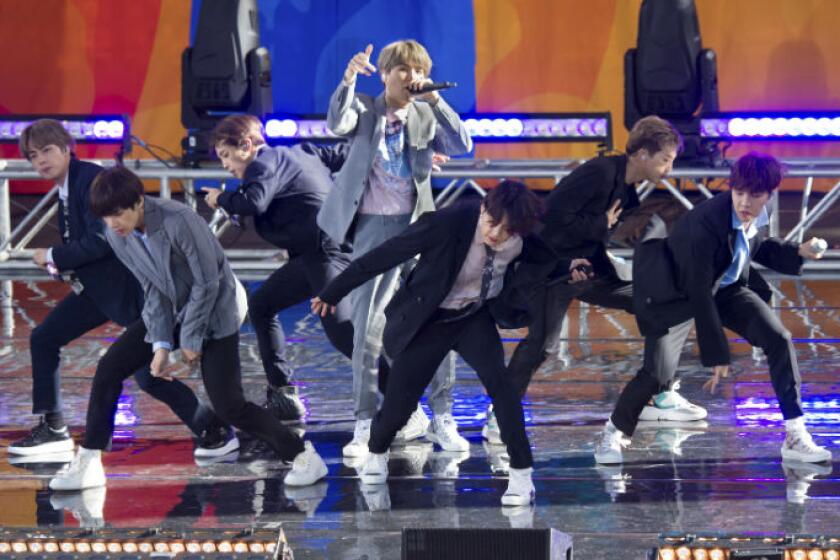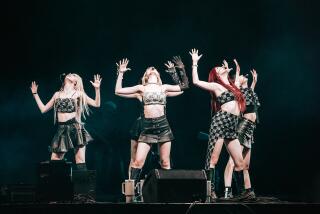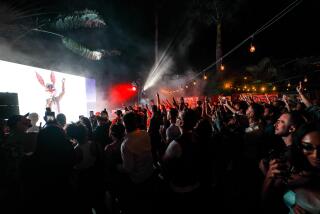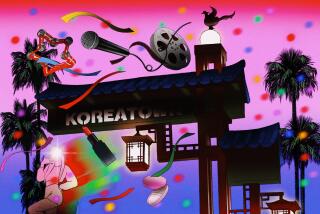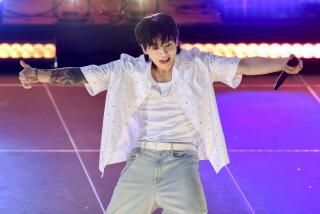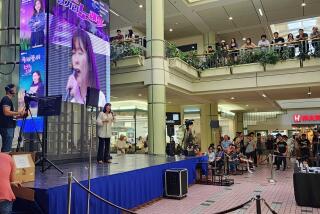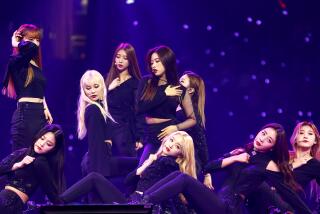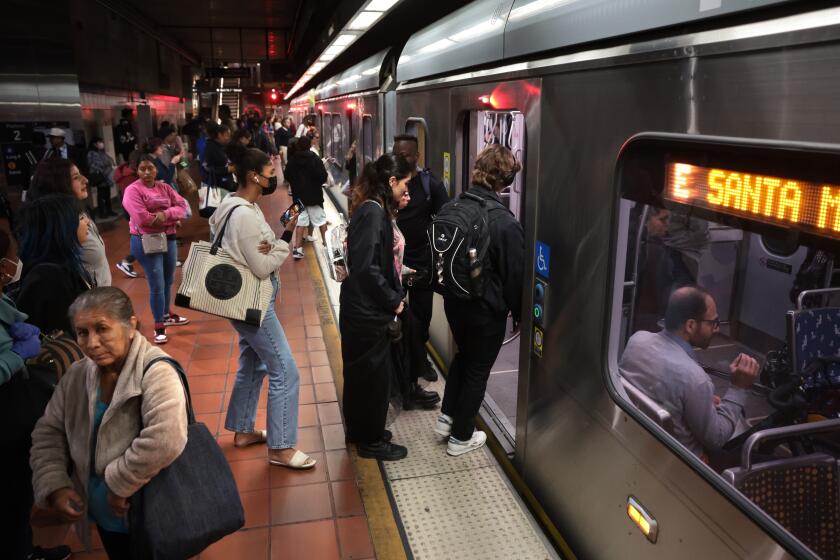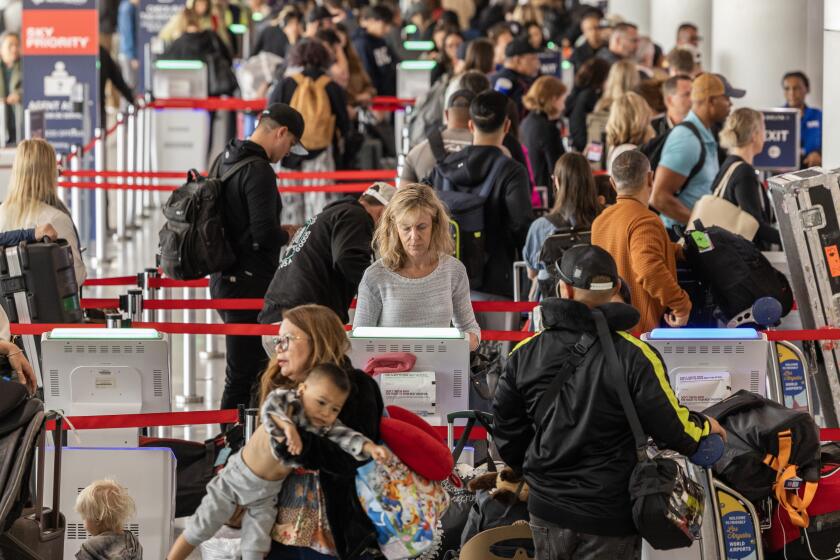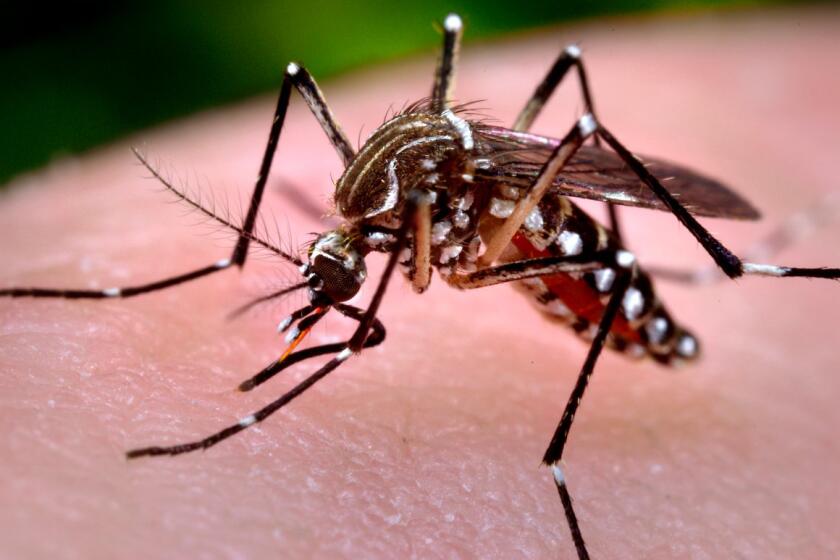Coronavirus halted L.A.’s biggest K-pop festival. Now fans have a digital alternative
If any music genre was going to thrive in the era of quarantined livestreams, it was K-pop.
While events like KCON and massive concert tours like BTS and SuperM have become fixtures in SoCal’s music calendar, K-pop’s life here began online and flourished in digital spaces. Fans were well-equipped to follow faraway artists and find forums to keep their community going without in-person interaction.
But like all festivals that are down for the count this year, the loss of KCON — far and away the marquee fan event of the year in L.A. — is a blow to the local K-pop scene, which counts the days until its favorite acts come to town and fans can revel in their devotion in person.
Enter KCON:TACT, a digital incarnation of the festival happening this weekend. True to the genre’s ultra-online culture, it doesn’t just replace the arena shows and fan panels, but also opens up other avenues for fans to stay invested, like one-on-one video conferences with acts and fan performances broadcast alongside those of idol groups.
Kim Hyun Soo, the head of CJ ENM global festivals (the parent organization behind KCON), spoke with The Times about how K-pop has been transformed by the pandemic, the lessons it can teach the rest of the music industry about digital shifts, and how the famously restive fandom is meeting the moment of protests against police brutality and for racial justice in America. (The responses below have been translated from Korean.)
Fans swarmed police tip lines and white-supremacist hashtags with clips of K-pop groups BTS and Blackpink to make them useless.
How has COVID-19 affected K-pop culture, especially the way fans gather and sustain their communities?
As the coronavirus broke out, in the beginning, it created a lot of confusion and they were kind of frustrated. But K-pop fandom, among all genres, has more bonding among fans than most. Because of that, and because they are very digital-savvy, they found ways to connect to talk. They needed each other more, and that strengthened the bonds.
Overall, I think fans are frustrated about the lack of content and cultural experiences at the moment, but they’re also struggling because it’s hard to anticipate what’s next. The future is unforeseeable. But K-pop started online and it broke out online. They’re handling this better than we think.
K-pop is perhaps the most digitally savvy and ‘extremely online’ music culture today. Do you think that the scene was better prepared than most to make a shift to being completely. digital during COVID-19 quarantine?
Yes, I believe K-pop as an industry and fandom was ready and better prepared than other genres. K-pop has its own unique culture. While fans come to broadcast stations and go to meet and greets, we hear about how fast South Korea responded to the coronavirus, and it had a lot to do with how safety measures were put in place and South Koreans adapted to the situation. The beginning of K-pop took place online and expanded offline. The K-pop industry is inherently about digital transformation. It was much easier for fans and the industry to transition to virtual events and online concerts.
Jack in the Box’s virtual prom needed DJs. Enter Diplo and Dillon Francis, two of the artists hoping livestream paychecks can replace concert revenue.
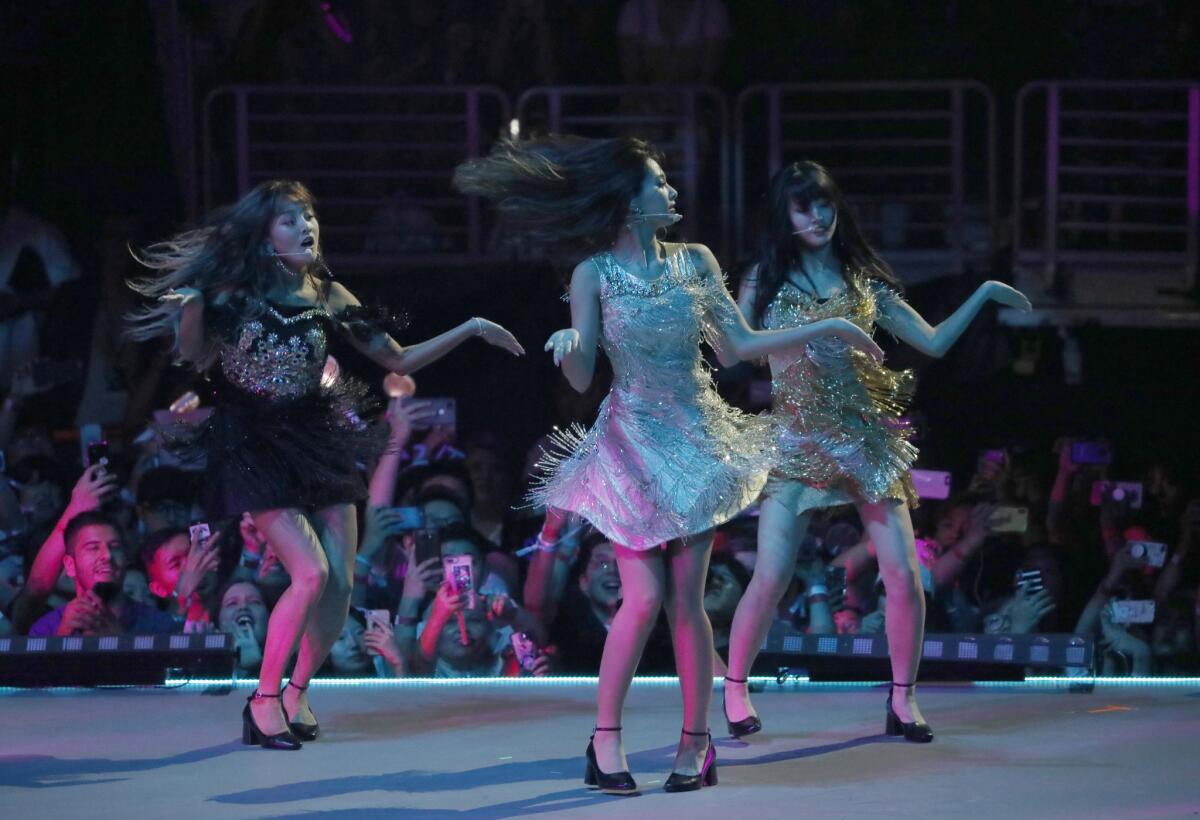
KCON in particular is built on fandoms physically coming together and interacting with artists. What were some of the challenges of re-creating that experience wholly online?
Trying anything for the first time comes with challenges. The hardest part has been incorporating all the new interactive elements, as fans really enjoyed that. We have to understand what elements they value the most and piece the new tech together, to create ways to interact and connect with artists, that’s been the hardest part.
There’s risk, but there’s opportunity. A lot of people say we’re doing KCON:TACT in place of KCON and see it as a substitute. But we believe it’s a new wave, a new genre of live events. It’s not a replacement. It’s an addition. We had been exploring ideas of expanding digital live events since two or three years ago. There were geographic limitations, time limitations, we were not able to reach all fans who wanted to see KCON. This became an excellent opportunity to expedite everything and turn it into a reality.
Do you think that the way KCON and the K-pop industry have handled the shift to online events has lessons or examples for the broader music and events industry?
I think music and the live event industry will face more rapid digital transformation. Fans are thirsty for more quality content, and show organizers and creators feel obligated and urged to create it for them. All of this is driving us to create that newer wave of events. It’s not going to just be traditional virtual events. Even with live concerts, a livestream can be a supplemental way of enjoying it live. There will be lot of collaboration between off- and online events.
K-pop fans recently joined forces in several actions meant to support Black Lives Matter and justice movements in America. What does that say about the ways fandom is changing to meet the urgency of the current moment?
I have followed the news, and I personally believe justice and equality has to be there for the future. I feel proud for the fans in the K-pop community contributing to this. I support them and stand with them.
More to Read
More to Read
More to Read
The biggest entertainment stories
Get our big stories about Hollywood, film, television, music, arts, culture and more right in your inbox as soon as they publish.
You may occasionally receive promotional content from the Los Angeles Times.
